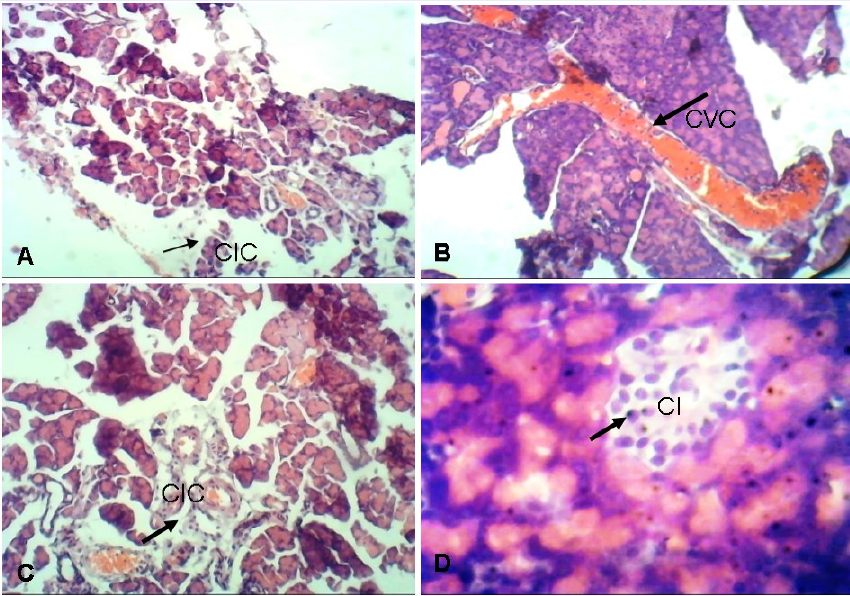Aqueous extract of Azadirachta indica leaves favorably alters the course of streptozotocin-induced diabetes in rats: A comparative prospective cohort study
DOI:
https://doi.org/10.15419/bmrat.v7i7.617Keywords:
Azadirachta indica, diabetes, streptozotocin, haemoglobin, total cholesterol, pancreasAbstract
Introduction: Azadirachta indica (neem) is one of the plants commonly used in African traditional medicine for the treatment and management of diabetes mellitus. The present study was undertaken to evaluate the effect of aqueous extract of A. indica leaves on hematology, lipid profile and organ-system function of streptozotocin-induced diabetic male rats.
Methods: Thirty albino rats of Wistar strain, weighing between 120 and 150 g, were randomly divided into 6 groups (A-F) and used for the study. Group A was used as a healthy normal control. Groups B-F were induced with diabetes using 50 mg/kg bodyweight (bw.) of streptozotocin. Group B was diabetic untreated; Group C was treated with 100 mg/kg bw. metformin; Groups D to F were treated with 100, 200 and 400 mg/kg bw. of the aqueous extract, respectively. The treatment was carried out daily for a period of 28 days. At the end of the experimental period, the hematological parameters were analyzed using auto haematology analyser. Lipid profiles and histopathological investigations were performed using standard methods.
Results: The results obtained showed that aqueous extract of A. indica significantly (p < 0.05) increased the hemoglobin concentration, packed cell volume, red blood cell count, and platelet count of the streptozotocin-induced diabetic rats compared with those of the diabetic-untreated rats. The mean hemoglobin concentrations for groups A, B, C, D, E and F were 11.78, 8.200, 15.18, 13.88, 14.03 and 14.93, respectively. Treatment with the graded doses of the aqueous extract of A. indica significantly (p < 0.05) reduced the total cholesterol, low-density lipoprotein cholesterol, triglycerides and very-low-density lipoprotein, compared with those of the diabetic-untreated control. Treatment also significantly (p < 0.05) increased the high-density lipoprotein cholesterol (HDL-c), compared with that of the control. The mean HDL-c concentration for groups A, B, C, D, E and F were 49.58, 29.79, 40.89, 38.53, 40.40 and 46.54, respectively. The histopathological studies showed regeneration of the pancreas, liver, kidney, heart, brain and lungs for the groups treated with the extract, compared with the diabetic-untreated animals that revealed severe damage to the organ-system functions.
Conclusion: These results suggest that the aqueous extract of A. indica can be considered as an excellent remedy for diabetes and a substitute for drugs to reduce complications associated with diabetic conditions.

Downloads
Published
Issue
Section
License
Copyright The Author(s) 2017. This article is published with open access by BioMedPress. This article is distributed under the terms of the Creative Commons Attribution License (CC-BY 4.0) which permits any use, distribution, and reproduction in any medium, provided the original author(s) and the source are credited.
